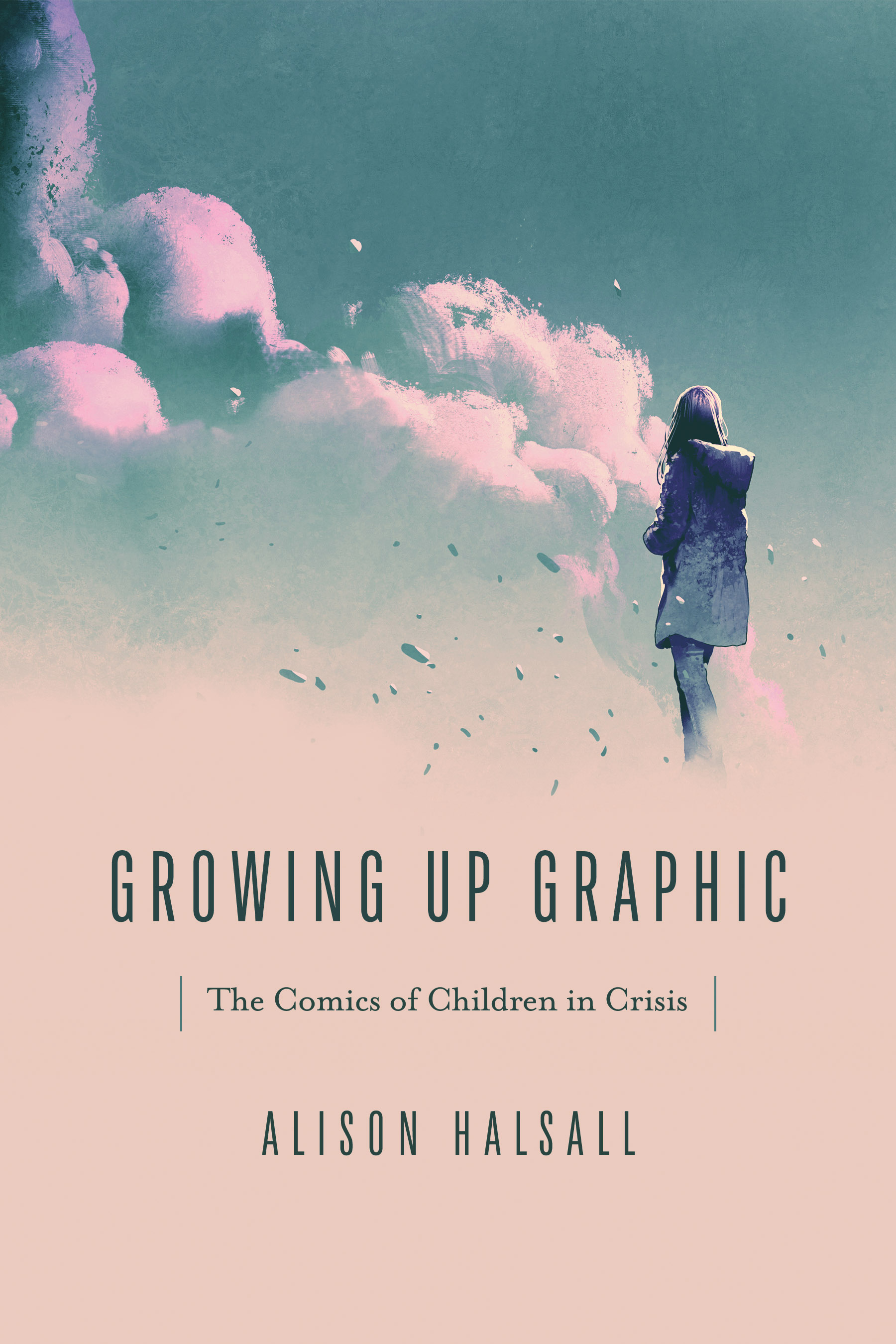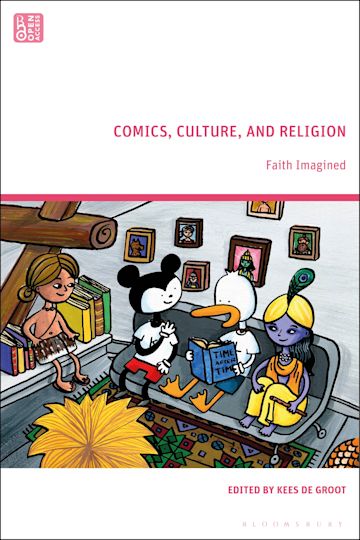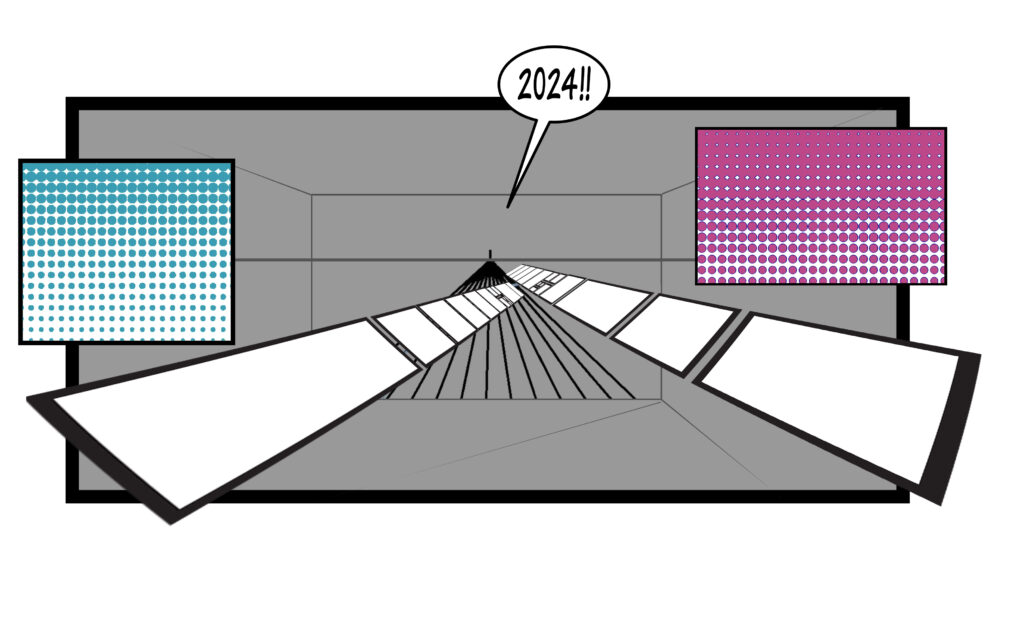Magazine
CFP: Auto / Bio / Fictional Graphic Narratives
CFP: Comics and Film: An Uncanny Relationship
CFP: Transnational Italian Comics
CFA: Fandom | Cultures | Research – (Issue 1/25)
Call for Nominations: Martin Schüwer Publication Prize 2024
Call for Nominations:
Martin Schüwer Publication Prize for Excellence in Comics Studies
Annual award for the best article by an early-career scholar, organized by the German Society for Comics Studies (ComFor) and the Committee for Comics Studies at the German Society for Media Studies (GfM)
The German Society for Comics Studies (ComFor) and the Committee for Comics Studies at the German Society for Media Studies (GfM) are announcing for the sixth time in 2024 the Martin Schüwer Publication Prize for Excellence in Comics Studies. The prize has been awarded annually since 2019. It supports scholars who, regardless of their actual age, do not yet hold a permanent academic position. By honoring outstanding publications in the field of interdisciplinary comics research, the award aims to create more visibility for comics-related research, promoting and communicating its importance to a wider public.
The prize is named after the late Martin Schüwer, a scholar of English Literature and Culture who specialized in comics studies and who, very unfortunately, died at a far too early age in 2013. His dissertation Wie Comics erzählen (2008), published 16 years ago, has opened up new ground for narratological comics research and has become a standard work in German-language comics studies. With this and his other works on comics as well as on the didactics of English literature, Martin Schüwer set valuable standards regarding the excellence, accessibility and range that publications in our fields can achieve. Both as a comics researcher and as a person, Schüwer had a distinct way of talking to people, characterized by his open-mindedness and a genuine interest in others. Talking to and with others, he aimed to advance comics studies. We dedicate the award to him and this very goal.
Submissions and Nominations:
Accepted for nomination are published articles of chapter length. They may have appeared in anthologies or journals, as chapters, or within longer monographs, but also as essays and other text forms of similar length. The submitted and nominated texts may have been written by one or more authors. All authors must not hold a permanent academic position at the time of nomination.
Contributions nominated for the Martin Schüwer Prize 2024 must be published in German or English between January 1, 2022 and December 31, 2023. Texts yet in print or only accepted for publication cannot be considered. Repeat submissions are not possible. Also excluded are complete monographs and unpublished qualifying publications. The editorship of anthologies or journal issues is not eligible for nomination, but individual contributions in these collections are.
Nominations are to include the recommended text as well as a short substantiation (300-500 words). Self-nominations are possible and welcome, the jury would also particularly like to call for third-party nominations of impressive texts. Deadline for all submissions is April 30, 2024. Please send your nominations as one complete PDF to schuewer-preis@comicgesellschaft.de.
Prize and Award Ceremony:
The official announcement of the award winner will take place during the annual conference of the German Society for Media Studies (September 25.–28., 2024; Johannes Gutenberg-University, Mainz ). The award ceremony with an invited lecture by the award winner will take place at the annual conference of the German Society for Comic Studies (October 23.–25., 2024; University of Groningen, Netherlands). The laureate will also receive the prize money of 1000 €, will not have to pay the membership fee of the German Society for Media Studies (GfM) for one year and will become an honorary member of ComFor for life.
Monitor 76: New Publications on Comic Books
Monitor is an irregularly published overview of publications from the previous six months that may be of relevance to comics studies scholars. The introductory texts are the respective publishers’. Do you have suggestions or information on new releases that have been overlooked and should be introduced on our website? Please let us know via email: redaktion@comicgesellschaft.de.
→ See previous Monitor posts.
 Growing Up Graphic: The Comics of Children in Crisis
Growing Up Graphic: The Comics of Children in Crisis
Alison Halsall
The Ohio State University Press
September 2023
Publisher’s website
“In Growing Up Graphic, Alison Halsall considers graphic texts for young readers to interrogate how they help children develop new ideas about social justice and become potential agents of change. With a focus on comics that depict difficult experiences affecting young people, Halsall explores the complexities of queer graphic memoirs, narratives of belonging, depictions of illness and disability, and explorations of Indigenous experiences. She discusses, among others, Child Soldier by Jessica Dee Humphreys and Michel Chikwanine, War Brothers by Sharon E. McKay, Baddawi by Leila Abdelrazaq, Matt Huynh’s interactive adaptation of Nam Le’s The Boat, and David Alexander Robertson’s 7 Generations. These examples contest images of childhood victimization, passivity, and helplessness, instead presenting young people as social actors who attempt to make sense of the challenges that affect them. In considering comics for children and about children, Growing Up Graphic centers a previously underexplored vein of graphic narratives and argues that these texts offer important insights into the interests and capabilities of children as readers.”
 Super-Girls of the Future: Girlhood and Agency in Contemporary Superhero Comics
Super-Girls of the Future: Girlhood and Agency in Contemporary Superhero Comics
Routledge Studies in Gender, Sexuality, and Comics
Charlotte J. Fabricius
Routledge
October 2023
Publisher’s website
“Super-Girls of the Future: Girlhood and Agency in Contemporary Superhero Comics investigates girl superheroes published by DC and Marvel Comics in the first two decades of the twenty-first century, asking who the new-and-improved super-girls are and what potentials they hold for imagining girls as agents of change, in the genre as well as its socio-cultural context.
As super-girls have grown increasingly numerous and diverse since the turn of the millennium, they provide an opportunity for reconsidering representations of gender and power in the superhero genre. This book offers the term agentic embodiment as an analytical tool for critiquing the body politics of superhero comics, particularly concerning youth, femininity, whiteness, and violence. Grounded in comics studies and informed by feminist cultural studies, the book contributes a critical and hopeful perspective on the diversification of a genre often written off as irredeemably conservative and patriarchal.”
 Ben Katchor
Ben Katchor
Benjamin Fraser
University Press of Mississippi
October 2023
Publisher’s website
“The recipient of a 2000 MacArthur fellowship, Ben Katchor (b. 1951) is a beloved comics artist with a career spanning four decades. Published in indie weeklies across the United States, his comics are known for evoking the sensorium of the modern metropolis. As part of the Biographix series edited by Frederick Luis Aldama, Ben Katchor offers scholars and fans a thorough overview of the artist’s career from 1988 to 2020.”
 The Political Imagination in Spanish Graphic Narrative
The Political Imagination in Spanish Graphic Narrative
Routledge Advances in Comics Studies
Xavier Dapena, Joanne Britland (eds.)
Routledge
November 2023
Publisher’s website
“In a spirit of community and collective action, this volume offers insights into the complexity of the political imagination and its cultural scope within Spanish graphic narrative through the lens of global political and social movements.
Developed during the critical years of the COVID-19 pandemic and global lockdown, the volume and its chapters reflect the interdisciplinary nature of the comic. They employ a cultural studies approach with different theoretical frameworks ranging from debates within comics studies, film and media theory, postcolonialism, feminism, economics, multimodality, aging, aesthetics, memory studies, food studies, and sound studies, among others.”
 Comics, Culture, and Religion: Faith Imagined
Comics, Culture, and Religion: Faith Imagined
Kees de Groot (ed.)
Bloomsbury
November 2023
Publisher’s website
“This open access book offers an overview of the relations between comics and religion from the perspective of cultural sociology. How do comics function in religions and how does religion appear in comics? And how do graphic narratives inform us about contemporary society and the changing role of religion?
Contributing scholars use international examples to explore the diversity of religions, spirituality, and dispersed notions of the sacred, including Christianity, Islam, Judaism, Zoroastrianism, Indian, and Japanese religions. In addition, the rituals, ethics, and worldviews that surface in the comics milieu are discussed.”
 The Patterns of Comics: Visual Languages of Comics from Asia, Europe, and North America
The Patterns of Comics: Visual Languages of Comics from Asia, Europe, and North America
Neil Cohn
Bloomsbury
December 2023
Publisher’s website
“Comics are a global phenomenon, and yet it’s easy to distinguish the visual styles of comics from Asia, Europe, or the United States. But, do the structures of these visual narratives differ in more subtle ways? Might these comics actually be drawn in different visual languages that vary in their structures across cultures? To address these questions, The Patterns of Comics seeks evidence through a sustained analysis of an annotated corpus of over 36,000 panels from more than 350 comics from Asia, Europe, and the United States. This data-driven approach reveals the cross-cultural variation in symbology, layout, and storytelling between various visual languages, and shows how comics have changed across 80 years.“
CfP 19th annual ComFor conference 2024 in Groningen: “Graphic Medicine”
Journal Monitor 17: New Publications on Comic Books
The Journal Monitor is a subcategory of the regular Monitor. It is an irregularly published overview of issues of international journals on comics studies as well as special issues on corresponding topics. The introductory texts and/or tables of contents come from the respective websites.
Do you have suggestions or information on new releases that have been overlooked and should be introduced on our website? Please let us know via email: redaktion@comicgesellschaft.de.
→ See previous Monitor posts.
European Comic Art 16.2
online im Abonnement
Website
- Domingo Sánchez-Mesa, Jan Baetens: “Intermediality and Comics”
- David Miranda-Barreiro: “Intermediality and Transmedial Thanatography in Jacobo Fernández Serrano’s Lois Pereiro: Breve encontro”
- Daniela Kuschel: “‘Between Stage and Page’: La vida es sueño as Comic Book”
- Nicoletta Mandolini, Giorgio Busi Rizzi: “Brazilian Trans Artivism, Comics and Communities, between Digital and Print: The Cases of Pequenas felicidades trans and Transistorizada”
ImageText 14
 online, open access
online, open access
Website
Issue 1:
- Alexander Slotkin, Laura Gonzales: “Technical Storytelling: Comics and Community”
- Mónica González Ybarra, Idalia Nuñez: “Zines from the Borderlands: Chicanx/Latinx Pre-service Teacher Multimodal Critical Reflections”
- Emma Kostopolus: “Skillshare and Guerrilla TechComm: Zines in the Technical Writing Classroom”
- Kristin C. Bennett: “Bam! Pow! Zap! Battling Systemic Ableism in Technical and Professional Medical Communications through the Application of Graphic Medicine Grounded in Disability Justice”
Issue 2:
- Seamus O’Malley: “Superpowerlessness: Hellblazer and Thatcher”
- Nao Tomabechi: “The Silk Road to Better Representation: Marvel’s Silk and the Progress of Asian American Female Representation”
- Yi Wang: “’Memories Are Powerful Things’: Exploring Post-Incarceration Trauma Through Young Adult Comics”
Gothic Studies 25.3
 Sonderausgabe: Gothic and Comics
Sonderausgabe: Gothic and Comics
online, open access
Website
- Julia Round, Susanne Schwertfeger: “Introduction: Gothic and Comics”
- Stuart Lindsay: “The Transgressive Bodies of Dark Horse Comics’ Aliens Line”
- Mary Beth Tegan, Matthew Costello: “A Woman is Being Side-Kicked: Gothic Superheroes and the Suppression of Female Autonomy Amid Feminism’s Second Wave”
- Matthew J. A. Green: “‘Keep it Gothic, Man’: Gothic and Graphic Medicine in Ian Williams’s The Bad Doctor”
- Tosha R. Taylor: “Gothic Doubling and Fractured Identity in Shōjo Manga: Yuki Kaori’s Angel Sanctuary”
- Catherine Spooner: “My Friend the Devil: Gothic Comics, the Whimsical Macabre and Rewriting William Blake in Vehlmann and Kerascoët’s Satania”
Inks: The Journal of the Comics Studies Society 7
 online im Abonnement
online im Abonnement
Website
Issue 1:
- Michelle Ann Abate: “Thinking Outside of the Box: Theorizing the Frameless Panel”
- Jacob Murel: “An Exploration in the Digital Analysis of Comics Images”
- Philip Smith: “Sandro Botticelli’s Visual Language in Illustrations of The Divine Comedy”
- Jenny Robb: “Preserving the Legacy of Black Press Cartoonists”
Issue 2:
- Manuela Di Franco: “From Funnies to Adventures: Translation, Censorship, and Adaptation of American Comics in Fascist Italy”
- Michael Kobre: “Disallowed Truths: Race, Shadow Books, and Captain America”
- Elizabeth Woock: “The Graphic “I” in Research Comics”
- Elizabeth Woock: “Visualizing the Author”
- Natsume Fusanosuke, Jon Holt, Teppei Fukuda: “A Wide Range of Possible Expression from Tezuka’s Manga to Gekiga, from Azuma Hideo to Doraemon”
Issue 3:
- Edmilson F. Miranda Jr., David Callahan: “(In)visible Interstices: Double-Consciousness and the Gutter in Brazilian Jefferson Costa’s Rosebush, Medal, Plantation and Other Stories”
- John Petrus: “Monstrous Beauty: The Alternative Aesthetic of Difference in Emil Ferris’ My Favorite Thing Is Monsters”
- Lara Saguisag: “Labor in the Margins: Filipino Comics Workers in the US Comic Book Industry”
Journal of Graphic Novels and Comics 14
online, open access
Website
Issue 5:
- Abhilasha Gusain, Smita Jha: “A Visual Dialogue: Practising Hospitality through the reading of Graphic Narratives”
- Enrique Del Rey Cabero: “Portrait of the comics artist as a failure. Conflicted authorship, metacomic and exercises in style in Kiko da Silva’s El infierno del dibujante”
- Tyler Welsh: “Lost in adaptation: (violent) frames in The Killing Joke”
- Arya Suresh, Sathyaraj Venkatesan: “‘Fog of Medication’: psychiatric drugs, neurochemical selves, and graphic medicine”
- Ritam Sarkar, Somdatta Bhattacharya: “Urban comics and social justice: restructuring neoliberal spaces of Delhi in Sarnath Banerjee’s all quiet in Vikaspuri”
- Kazumi Nagaike: “Queer seduction in Japanese essay manga: an analysis of manga physicality and gay, lesbian and Fujoshi eroticism”
- Anna Nordenstam, Margareta Wallin Wictorin: “Climate Activism – Contemporary Swedish Feminist Comics”
Issue 6:
- Vikram Nijhawan: “’The lunatic, the lover, and the poet’: ambiguous three-way authorship in Neil Gaiman’s Sandman #19, “A Midsummer Night’s Dream”
- Aishwarya Katyal, Neha Jain: “Behold the Virago: Iconography of goddess Kali and body politics in Someday by Samidha Gunjal”
- Rafael Alarcón Medina: “Sensational comics: erotic comics, women, and popular subjectivity in neoliberal Mexico”
- Pritesh Chakraborty: “Youth in peril: representation of vulnerability of young people in doga comic books”
- Danielle Terceiro: “Three graphic memoirs and the ‘family mind’ in action”
- Robert Aman: “Spirou in the Congo: colonial racism and civilising mission in journal de Spirou 1938-1960”
- Abinsha Joseph, Smita Jha: “Lands that make us: decoding maps, landscapes, and identities in Aaniya Asrani’s Portraits of Exile”
- Sathyaraj Venkatesan, Arya Suresh: “Geography of madness: communitarian psychiatry and spatial logic in The Third Population”
- Katarzyna Machała: “Reading To Kill a Mockingbird two generations later: the graphic novel”
